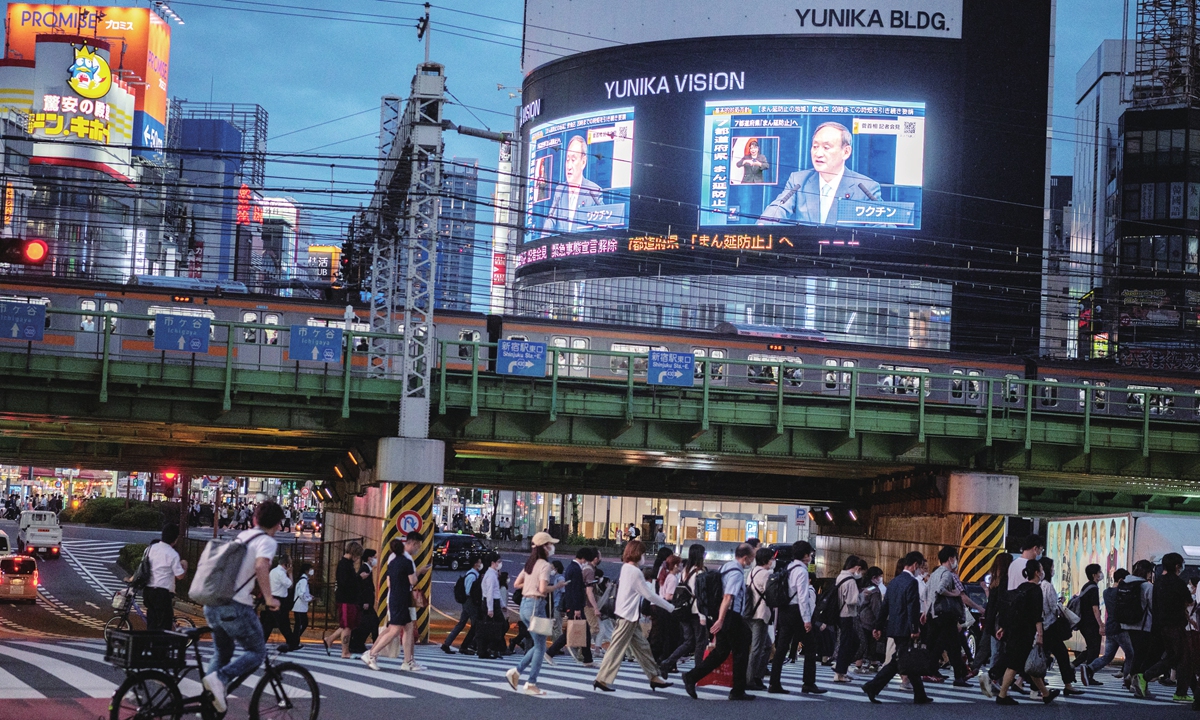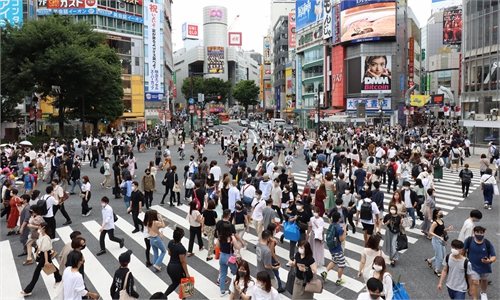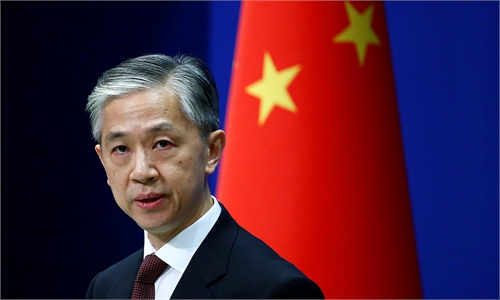Suga rival sparks govt reshuffle ire
Former foreign minister wants limits put on executive posts

Japan's Prime Minister Yoshihide Suga is seen on a live TV broadcast in Tokyo's Shinjuku area on Thursday, after Japan announced that a virus state of emergency in Tokyo and several other regions will be lifted on June 20. Photo: AFP
Japanese Prime Minister Yoshihide Suga is set to replace an unpopular long-term ally as he seeks to shore up support ahead of a party leadership election he must win before the general election planned for October, media said on Tuesday.Liberal Democratic Party (LDP) Secretary General Toshihiro Nikai told Suga he would step down at meeting on Monday, the reports said.
"I've been in the Secretary General post for more than five years, I want you to do the reshuffle without hesitation," Nikai told Suga, according to the public broadcaster NHK.
Suga's move came as a surprise because Nikai was instrumental in helping him become the prime minister in 2020. Nikai was also the first among LDP faction chiefs to throw his group's support behind the premier in 2021's contest.
But some parliamentarians have voiced their unease with the amount of power wielded by Nikai, 82, who has held the key LDP post, with control over campaign funds, since August 2016 - the longest in the party's history.
Suga's rival for the party leader, former foreign minister Fumio Kishida, sparked ire from Nikai after he proposed limits on executive posts and promised to promote young and middle-level lawmakers over heavyweights last week.
The proposal was seen as Kishida's bid to attract grassroots LDP members who, unlike 2020, will vote along with members of parliament and who, fearful of losing their seats, may be wary of following their elders' orders.
The reshuffle of the party executive, including Nikai, was set to take place next week, the Kyodo news agency reported. Nikai and Suga were slated to meet again Tuesday afternoon.
Suga's move was "without a doubt" aimed at helping him win the backing of party grandees who are Nikai's rivals, such as Suga's predecessor Shinzo Abe and Finance Minister Taro Aso, said Corey Wallace, assistant professor at Kanagawa University.
"It's about the use of party funds and distributing party posts," Wallace said.
"Nikai wasn't particularly popular inside the party and I don't think anybody would've tolerated him any longer after his record-long run." Abe's stance will be particularly closely watched given his influence inside two largest factions of the LDP - his own Hosoda group and the second-largest faction led by Aso - as well as among the conservative wing of the LDP, experts say.
The winner of the party chief contest is all but assured of being the premier due to the LDP's majority in the lower house and will guide the party through a general election, with the government considering a plan to hold the poll on October 17. Whoever leads the party in the election will face an uphill battle.



